
Like most people raised in the church, I grew up watching many Bible movies, from feature films to TV show adaptations to Hanna-Barbera cartoons. In 2022, I began writing Bible movie review articles, which led to watching dozens more Bible movies for research. I also watched a fair share of movies inspired by biblical events, like The Little Drummer Boy or Ben-Hur. Many times I was helped by resources like the websites Bible Films Blog and Decent Films that mentioned little-known Bible movies I should seek out. Recently, I compiled a list of all these Bible movies (or near-Bible movies) I watched. Counting TV and animated projects, I had watched between 100 and 120 adaptations of Bible stories.
Obviously, not all of these adaptations were great. Some, I liked very much, and they were not always the movies I expected to like (like Barabbas, an underrated biblical epic that pushed me to think about faith and predestination in new ways). Others I sampled and quickly discarded (like The Story of Joseph and His Brethren, too slowly paced and poorly scripted to hold my interest). A few amused me in ways the filmmakers maybe didn’t intend. For example, Noah’s wife doesn’t have a name in The Bible: In the Beginning, so Noah just calls her wife (“But wife, we can’t start that until the ark is finished...”). As I joked to a friend, you would think we had invented giving names for women before we invented ship-building, but not according to this movie.
In all seriousness, the experience was educational even when the movies did not meet my expectations. Many times, even the flawed Bible movies surprised me and challenged me to read the Bible better.
Here are some things I’ve learned along the way about Bible movies, including my recommendations for great ones.
Further Reading: Top 5 Bible Movies about Abraham
Photo Credit:©GettyImages/Nanci Santos
1. The Best Bible Movies Often Come from Unexpected Places

1. The Best Bible Movies Often Come from Unexpected Places
SLIDE 1 OF 10
Sticking with the Bible movies we were given as children is tempting. Sometimes, those movies are great. I was fortunate to be part of the generation that grew up on the VeggieTales series (on the original VHS tapes, even).
However, the more I expanded my sights, the more I discovered treasures. Movies made in different countries challenged me to see Bible stories differently. For example, Joseph the Dreamer, the first stop-motion movie made in Israel, helped me to consider how Jewish audiences (especially in 1962, not long after the Holocaust) interpret Jewish people’s suffering in the Bible. Movies with unusual perspectives are equally interesting. Genesis: Creation and the Flood features nomads telling the stories of Adam through Noah to their children, highlighting how important the nomadic tribe context is to the Old Testament.
Sometimes, I find well-crafted Bible movies in unexpected places. I love Testament: The Bible in Animation, a series of Bible cartoons by Welsh and Russian animators. Despite a modest budget, it produced better-looking and better-told Bible stories than most of the glossy American cartoons I grew up with.
Seeking Bible movies outside our church library or Christian bookstore shelves can be tough. However, they are often easier to find than we assume. I was surprised to find that (as of this writing) Joseph the Dreamer was available on the director’s YouTube page for anyone to watch.
Looking outside familiar territory shows us Bible movies that will entertain and challenge us more than we expect.
Further Reading: Top 10 Bible TV Shows of All Time
Photo Credit: Yoram Gross Films via IMDb
2. Bible Movies Are Always about When They Were Made
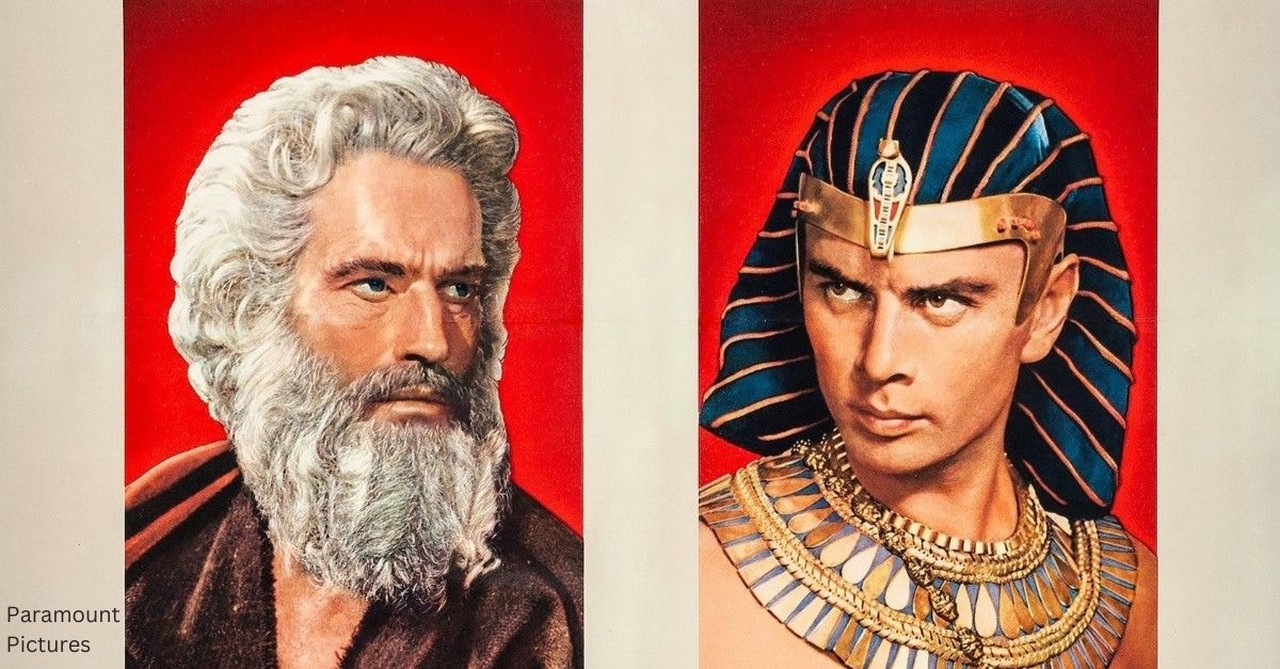
2. Bible Movies Are Always about When They Were Made
SLIDE 2 OF 10
I got this insight from Matthew Page’s book 100 Bible Films, in which he discusses how every Bible movie is informed by its filmmaking period. They all started with a basic narrative to retell (Joseph and his brothers, Moses and the burning bush, etc.). When they made the movie created factors influencing how they told that narrative. The factors include what was happening in world politics, what filmmaking styles were fashionable, or how biblical scholars interpreted texts at the time.
Once I recognize every Bible movie is a time capsule showing its period, I can consider how time affects the story. For example, Page sees the 1956 version of The Ten Commandments as informed by the Cold War: Moses and Pharoah are two massive power blocks refusing to concede to each other’s wishes. I’m especially fascinated by Lawrence Baron’s idea that you can see a Holocaust subtext in Yoram Gross’s adaptations of Old Testament stories, like Joseph the Dreamer.
Today, I try not to complain about a Bible movie if I haven’t considered its context. I try to remember that each one is made by people moving with the times… and that those people are often talking about today as much as they are talking about the Bible.
Further Reading: 10 Great Bible Movies about the Life of Moses
Photo Credit:©Paramount Pictures
3. Even Bible Movies Have Cliches to Watch Out For
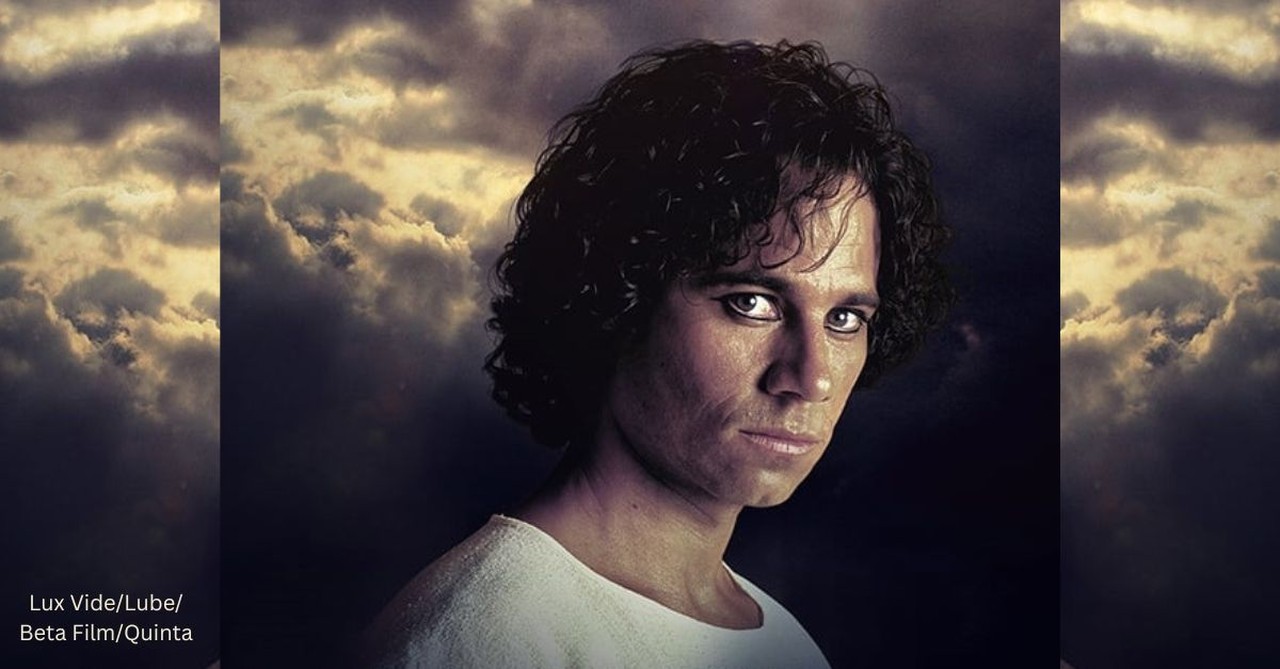
3. Even Bible Movies Have Cliches to Watch Out For
SLIDE 3 OF 10
As I watched Bible movies from different periods and styles, I realized how much I’m informed by those I grew up with. We all develop biases from the first Bible story adaptations we encounter—movies, books, cartoons, whatever. As we grow, we must examine those biases.
For example, I was surprised that The Bible Collection: Joseph made Potiphar sympathetic. In this version, Potiphar doubts his wife’s claim that Joseph attacked her and imprisons Joseph as a compromise. Doesn’t Genesis 39:19 say that Potiphar was enraged when he heard what Joseph allegedly did? Most Bible adaptations I was raised on depicted Potiphar as an angry man who believed his wife and punished Joseph with prison.
Then I remembered E. Randolph Richards and Richard James’ book Misreading Scripture with Individualist Eyes. The authors pointed out that Potiphar could easily have killed Joseph. He was a professional executioner, and everyone would have expected him to kill Joseph. The fact Potiphar only imprisoned Joseph means that something else was going on. Since Potiphar’s culture prioritized the family’s good and the estate’s future, he was probably enraged at his tough position. If he killed Joseph, he lost a great estate manager. If he let Joseph live, he dishonored his wife (who would certainly divorce him, splitting his estate). So, imprisoning Joseph was a sly compromise where Potiphar could avoid dishonor but keep Joseph alive.
The problem was not with the movie. The problem was I was used to Bible adaptations portraying Potiphar in a particular way. The research showed me that there was more to the story than I imagined; a seemingly inaccurate movie got closer to the biblical text’s truth than I thought.
Part of watching Bible movies well is loving the Lord with all our minds (Mark 12:30), including developing discernment. As I learn to discern, I look at Bible movies and ask whether the movie engages with the text’s context or follows accumulated cliches. Every Bible movie is informed by what came before; the best filmmakers realize this and do their homework to avoid rehashing the past.
Further Reading: 10 Great Bible Movies about Joseph and His Brothers
Photo Credit:©Lux Vide/Lube/Beta Film/Quinta
4. The Bible Isn’t Always Kid-Friendly
4. The Bible Isn’t Always Kid-Friendly
SLIDE 4 OF 10
Since most of us discover the Bible in Sunday School, we often assume Bible movies must be family-friendly. When we re-read Bible stories as adults (like who Joseph’s sister Dinah was or how many girlfriends Samson had), we realize that these stories often have mature moments.
We also learn that the Bible contains things we may find strange. I particularly appreciated how The Bible Collection: Jeremiah reminded me that God told this Old Testament prophet to do dramatic things (like wearing an ox yoke on his shoulders) while giving his prophecies. As Eugene Peterson discusses in Run with the Horses, these actions were performance art to underline God’s shocking messages.
The Bible is filled with strange and shocking ideas. At least some of the Bible movies we watch should reflect that variety.
While I’m not advocating for X-rated Bible movies, the opposite doesn’t help either. We miss the point when we expect every Bible story adaptation to be family-friendly. I like The Ballad of Little Joe, the VeggieTales adaptation of Joseph’s story for children. I also like The Bible Collection: Joseph, a movie for adults that includes the sad stories of Dinah and Tamar. Our vision of Bible movies should include both options, giving adaptations to every age group and challenging us all to study the Bible better.
Further Reading: 10 Great Bible Movies about Queen Esther
Photo Credit:©
5. Every Bible Movie Interprets and Embellishes the Text
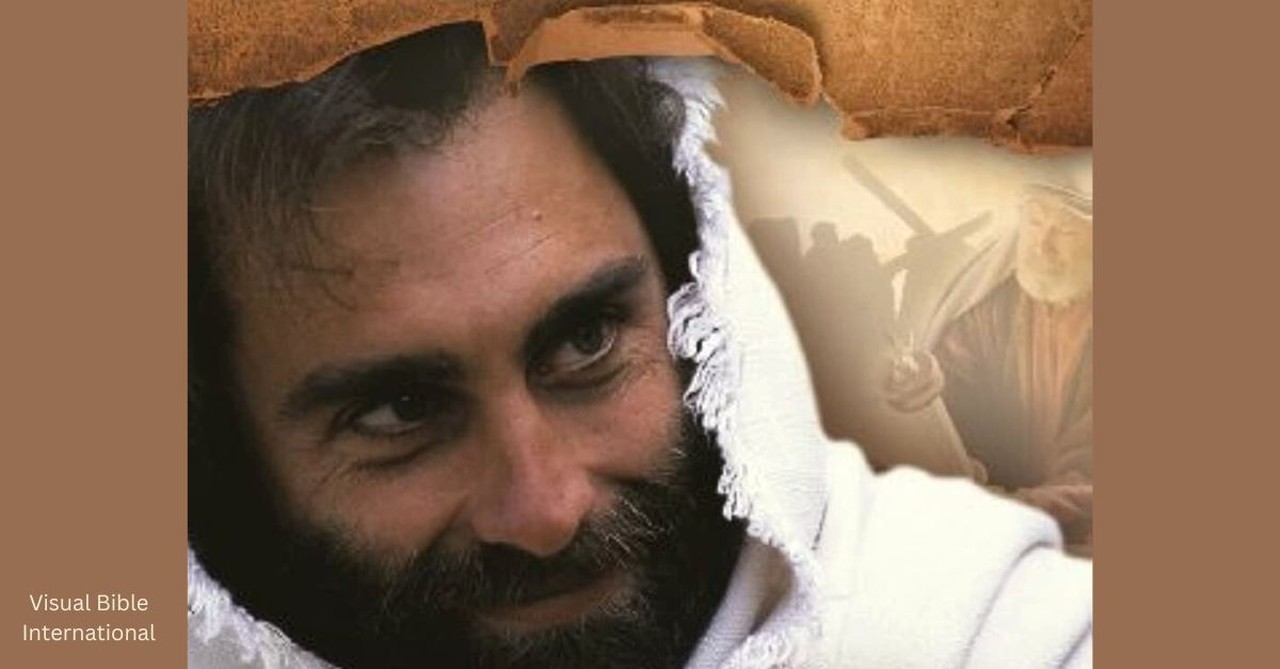
5. Every Bible Movie Interprets and Embellishes the Text
SLIDE 5 OF 10
Another great lesson I learned from Page was that people interpret every time they adapt anything. Whether it’s Bible stories, Shakespeare’s plays, or comic books, we change things every time we take a story from one medium to a new one.
The interpretation challenge may be especially true with the Bible because it’s an ancient text whose writers lived in different cultures with different values. Misreading Scripture with Individualist Eyes challenged me to consider what I missed when I read the Bible without thinking about when it was written and how my values affect how I read it.
For filmmakers, the cultural and historical gaps between biblical times and today mean that whenever someone adapts the Bible, they must decide what parts of the story work best on film and how to make its ideas accessible today. Even in the best cases, changes will be made.
My favorite example is The Visual Bible: Matthew. Like its follow-up, The Visual Bible: Acts, it was advertised as following the Bible as closely as possible, the dialogue following the NIV translation verbatim. The “zero-interpretation” idea seemed plausible until I watched the desert temptation scene . . . and the camera showed a snake crawling toward Jesus before the narrator introduced Satan. Without changing the text, the movie embellishes the narrative, adding a Garden of Eden image for Satan that reminds us that Satan will appear soon. Even movies that follow the Bible closely bring a perspective to the material.
Now, when I watch a Bible movie, I don’t ask if it will offer an interpretation. I ask whether I’m receiving a good interpretation: one that respects the original text and helps me understand it better.
Further Reading: 10 Surprising Movies about Jesus that You Should See
Photo Credit:©Visual Bible International
6. Most Bible Movies Cannot Tell the Full Story
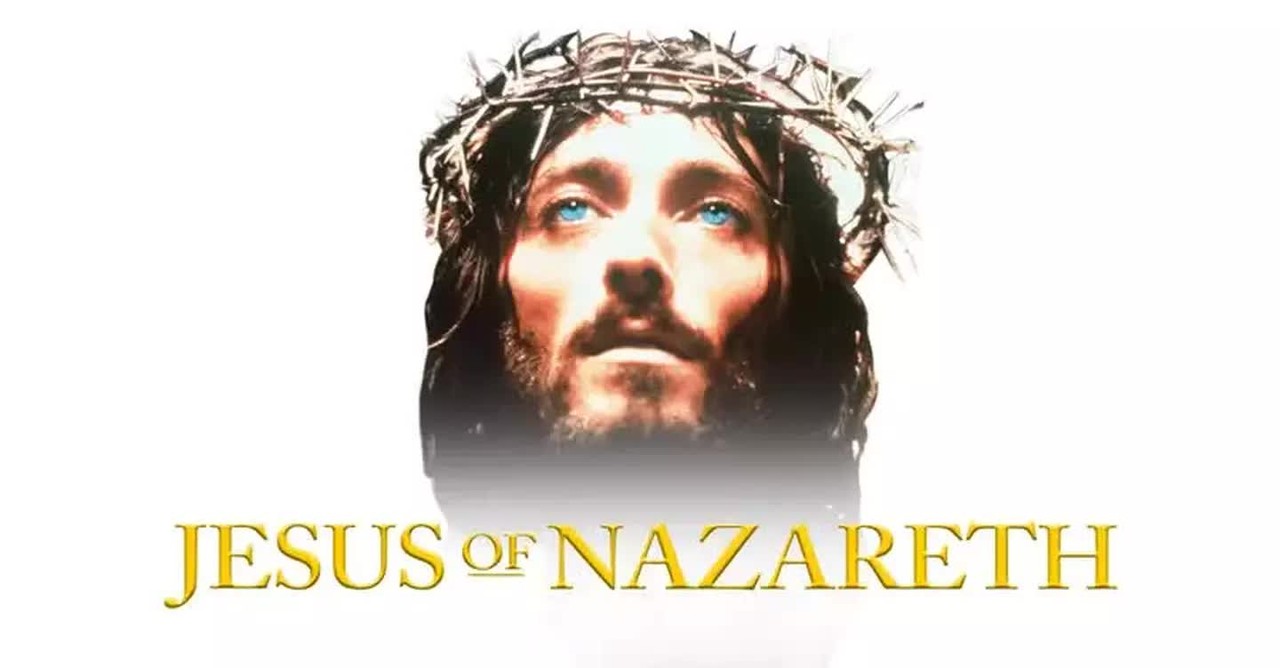
6. Most Bible Movies Cannot Tell the Full Story
SLIDE 6 OF 10
Philip Yancey writes in The Jesus I Never Knew about how our image of Jesus develops as we age and see different depictions. I quickly realized how right he was when I did research for my first Bible movie article—great Jesus movies to watch for Easter. No single movie captures the full complex image of Jesus. None of them can tell the full story.
Even The Jesus Movie, famously following the biblical text as closely as possible, is mostly based on one gospel (the book of Luke). Partly, the struggle is that the gospels diverge on some details (how many angels were at the tomb?). More importantly, as Mark L. Strauss observes in his book Four Portraits, One Jesus, each gospel highlights a particular side of Jesus. Matthew highlights Jesus fulfilling Messianic prophecies—the savior the Jews had been waiting for. In contrast, Luke highlights Jesus’ interactions with unwanted people (Gentiles, widows, lepers, etc.)—the Jesus who loved the least of these. We talk a lot about the gospels’ accuracy, and we should. We must also remember that each gospel is a divinely inspired work crafted to show a part of Jesus’ story. That’s why we have four gospels, not just one account.
So, unless someone develops an interactive Jesus movie where we can see each scene from a different gospel’s perspective, we can’t get a single Jesus movie that captures every detail of Jesus’ story. Instead, we should seek well-crafted movies that each capture a side of Jesus’ story. In Jesus of Nazareth, we get a great depiction of Jesus’ otherworldly goodness. In The Gospel According to St. Matthew, we get a great depiction of Jesus’ challenging lessons about abandoning greed and selfishness. In The Visual Bible: Matthew, we get a great depiction of Jesus’ love for everyone. And so on.
Whether it’s Jesus or other biblical figures, Bible movies can usually tell only part of the story. Instead of complaining about whether the movie “told the whole story,” we must ask which part of the story it told well.
Further Reading: 10 Best Jesus Movies You Should See
Photo Credit:©ITC Entertainment/RAI
7. Older Is Not Always Better

7. Older Is Not Always Better
SLIDE 7 OF 10
There’s a temptation, perhaps especially when so much popular American culture seems anti-Christian, to complain that nobody makes good Bible movies anymore. It’s easy to complain that Hollywood used to have more respect for the Bible.
To some extent, this is fair. Producing movies that “color outside the lines,” like Jesus Christ Superstar, became more popular after the 1950s. However, any book on Hollywood’s “golden period” will tell you that it wasn’t a holier town back then, and even filmmakers who took their biblical epics seriously had complicated lives. Furthermore, there are always profit reasons behind Hollywood making Bible movies. The 1950s saw many biblical epics, not necessarily because it was a pious time but because producers wanted big spectacle movies to outshine the new TV market.
Furthermore, our concerns about Bible movies not following the Bible are not new. Yes, the 2014 movie Noah was controversial for going outside the biblical record. Similar complaints could be made about The Ark, a 2015 TV adaptation where Noah has a son who dies in the flood. However, even silent movies like Noah’s Ark from 1928 had subplots involving Noah’s children getting into trouble. Other movies about Noah have weird elements that probably seemed sensible at the time. In 1959, the “good old days” of biblical epics, Disney released a stop-motion cartoon about Noah featuring singing animals and Noah offering marriage counseling to the talking hippos.
It's easy to ride on nostalgia for “classic Bible movies,” but that makes us look foolish. It’s more helpful to recognize that every Bible movie trend has quirks and consider which ones tell the best stories, granting their quirks.
Further Reading: 10 Great Bible Movies about Noah’s Ark
Photo Credit:©Paramount Pictures
8. A Well-Crafted Bible Movie Has a Vision Statement

8. A Well-Crafted Bible Movie Has a Vision Statement
SLIDE 8 OF 10
After watching a few dozen Bible movies, I noticed that the best ones all had a common element: a clear perspective. The Miracle Maker is a great Jesus movie, but not just because it has great actors and direction: it knows what angle it will use to explore Jesus’ life and efficiently pursues that angle. In other words, it has a well-defined, well-executed vision.
Even if someone could capture the entire story of Jesus or Moses in one movie, it wouldn’t necessarily be good. The result would probably seem bloated and poorly crafted—not a good example of serving God with all our minds, hearts, and strength to produce good things that honor him. As Dorothy L. Sayers reminds us, “for any work of art to be acceptable to God it must first be right with itself. That is to say, the artist must serve God in the technique of his craft.”
Once we understand that well-made Bible movies have well-crafted visions, we can understand why even dated ones worked. Cecil B. DeMille’s biblical epics like Samson & Delilah often seem silly, but that silliness was planned. It’s camp—a deliberately over-the-top tone. Too many modern Bible movies try to include some camp (an over-the-top villain here, a gaudy costume there) without creating a vision that uses it well. The silliness becomes a random element, not a well-chosen ingredient.
Not only do adaptations interpret their sources. The best ones know they are offering an interpretation, a new vision, and carefully pursue that vision.
Further Reading: 7 Bible Movies about Samson You Should See
Photo Credit:©Paramount Pictures
9. Well-Crafted Bible Movies Do Fun Things with Side Characters
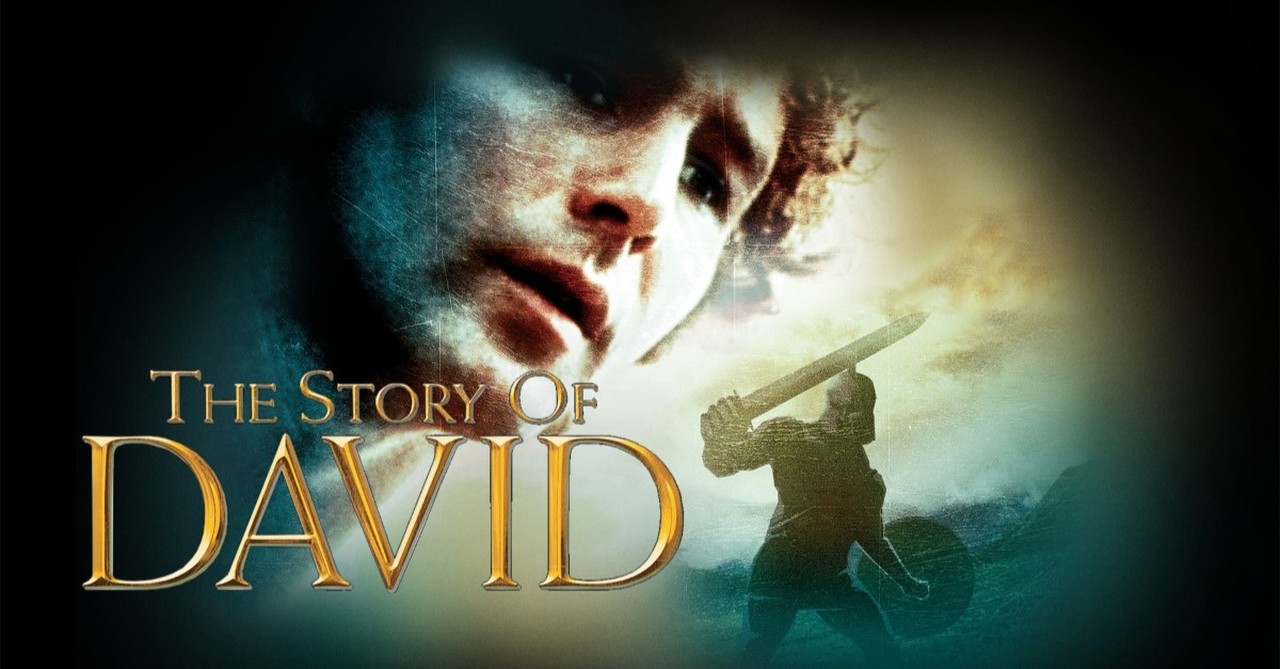
9. Well-Crafted Bible Movies Do Fun Things with Side Characters
SLIDE 9 OF 10
In this article, I’ve referred several times to how Bible movies treat the main characters—what side of Jesus’ story we get in a movie, and so on. While this is important, we must ask an equally important question: how are side characters treated?
This is often key to determining whether the movie has a well-developed vision. Is it playing on accumulated Bible cliches or going deeper? Will it use side characters as stock characters who might as well not appear in the story . . . or make them into interesting, believable human characters?
For example, I pay attention to how David’s wives are treated in Bible movies. I liked how The Bible Collection: David refused to make Bathsheba a one-dimensional temptress or victim. She is attracted to David and frightened at the consequences of being with him. She grieves her husband’s death and fiercely protects the son she has with David. She is a complicated woman in a complicated situation.
While the 1976 TV movie The Story of David isn’t as good, I appreciated how it depicted David’s complicated household (many wives and many children competing for his attention) as creating the family strife we see in David’s last years. It’s also one of the few movies about David I found that highlighted Uriah the Hittite’s reasons for taking God so seriously: he wasn’t born in Israel. His foreigner-turned-follower zeal to follow God contrasts with David’s hypocrisy.
As much as we care about the Bible story’s main characters, we must never forget that side characters were real people, and their stories matter. Handling their stories well, making them interesting parts of the narrative, creates memorable, crafted Bible movies.
Further Reading: 10 Great Bible Movies about King David
Photo Credit:©ABC
10. Well-Crafted Bible Movies Will Use Tricks
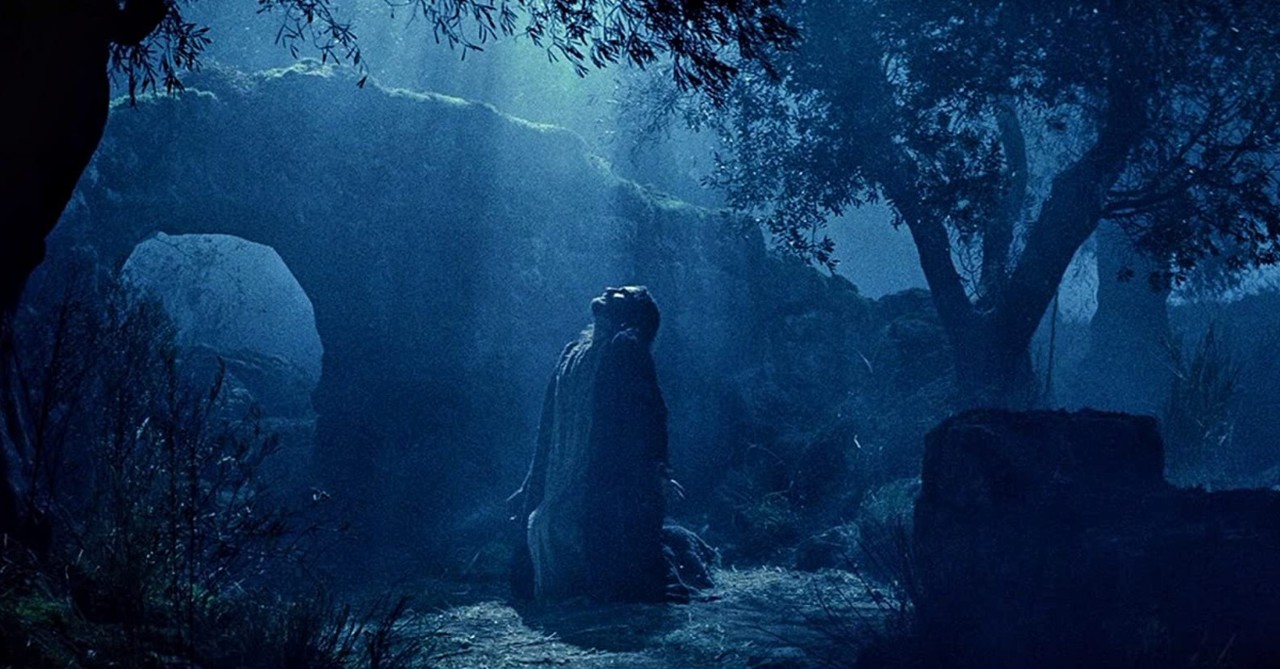
10. Well-Crafted Bible Movies Will Use Tricks
SLIDE 10 OF 10
We don’t talk much about genre when discussing Bible movies—maybe because we don’t like to think of religious entertainment as something people make. It’s easier to say that the movie moved me because “the spirit was moving.”
While it’s true that something spiritual may move us as we watch a movie, that shouldn’t be our knee-jerk response. If loving God with our minds means developing discernment, it includes considering what makes different entertainment work. Part of loving the creative gifts God has given us includes learning that each craft (movies, books, music, etc.) has tricks and tropes.
When I understand what makes a particular movie genre work, I can think about whether the filmmaker used their gifts well. If the Bible movie is styled like a costume melodrama (like One Night with the King), what makes a good melodrama? If the Bible movie is styled with suspenseful moments (The Passion of the Christ), what makes a good suspense movie?
The process especially helps with controversial movies like The Passion of the Christ. The movie sparked many conversations about its content, including some good conversations about how Jesus movies should portray Jewish people. However, the movie did not simply get strong responses because of its script; it got strong responses because its style shocked everyone. Mark Kermode noted that it was directed by someone well-versed in “exploitation cinema,” where you learn how to shock an audience quickly to keep them interested. The more important question is whether The Passion of the Christ shocks its audience for the right reasons.
Every Bible movie balances many elements: past and present, creative vision and budgets, cliches and new research. The best ones take all these elements and produce something that is entertaining yet makes us think more about the Bible’s teachings.
Further Reading: Top 10 Bible Movies of All Time
Photo Credit:©Icon Productions

Originally published June 21, 2024.







